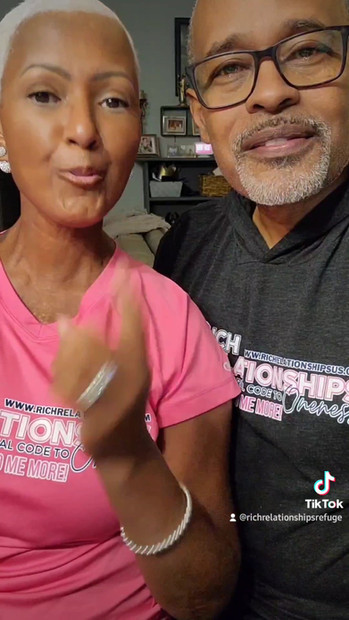What are essential life skills?
Life skills are "a set of psychosocial skills and Interpersonal skills that help people make informed decisions, solve problems, think critically and creatively, communicate effectively, Build healthy relationships, empathize and deal with others and manage their lives healthily and productively. They can be life skills. It refers to personal actions or actions towards others. Act to change the environment to create it.

Good for health." According to the World Health Organization (WHO).
Basic Life Skills Curriculum, taking into account the WHO definition
It gives young people the emotional, social and intellectual tools they need. Achieving success in life: on a personal, interpersonal, and in their communities and workplaces.
Why are essential life skills important?
Basic life skills provide young people with readily available tools to deal with the challenges of everyday life, from managing their emotions to making informed decisions. It helps children develop their personality, mental and physical skills, and abilities, realize their true potential by learning to know themselves and others, and make effective decisions to live together harmoniously in society. Education for All has included life skills among the essential learning tools for survival, capacity building, and quality of life.
It also documents that all youth and adults have "the man."
The right to benefit from an education that includes learning to know
Do it, live together. Recognize the importance of living together
As much as acquiring knowledge in an academic environment.
What are basic life skills?
• Purpose: To develop attitudes and beliefs in younger generations
They contribute to Azerbaijani society in a positive way. Achieving success in the transition to adulthood and the work world.
• Intended Audience: The Life Skills Lesson Pack is designed to be applied For the young generation between 10 and 24 years old
The purpose of the houses is to support youth initiatives and create a healthy environment for development.
• Expected Outcome: Through life skills education, younger generations are equipped with the basic skills needed to make the transition to productive adult lives; stress management; learning to deal with
Difficult feelings; Practice positivity; Improve self-esteem; feel
Sensation; Learn to listen well to others; learn to customize
the border Handles the dispute well; Finds the balance between priorities
and requests; Communicate with confidence; set goals; Make decisions; solve problems; think critically and creatively; use the executive
Learn functional skills and how to deal with adversity.
Basic Life Skills Curriculum for Youth
The core life skills curriculum for youth is based on an evidence-based psychosocial methodology, including cognitive behavioral therapy, mindfulness, and resilience activities. These skills help young people better understand themselves, relate well to others, and gain tools to face life's inevitable challenges.
• Self-Awareness: Knowing and Living with Yourself – This topic covers topics that promote student relationships and self-understanding, including student thoughts, feelings, and behaviors.
• Interpersonal Skills: Knowing and Getting Along with Others: Classes in this theme explore how to build healthy and respectful relationships; The classes emphasize the use of non-violent communication,
Affirmative actions and conflict resolution.
• Thinking Skills - Effective Decision Making: Skills taught in this theme include concrete ways of thinking and performing tasks that enable young people to make effective decisions, set relevant goals, and become informed consumers of information.
self-awareness
Stress management
Emotional regulation
Positive thinking
Self-esteem
interpersonal skills
Empathy
Listening Skills
Interpersonal effectiveness
Dealing with Disputes
9. Relationship Management - Dispatch
10. Reliable communication
thinking skills
Decision making
Troubleshooting
Critical and creative thinking
Executive function skills
Resilience
What are the ten most important life skills for students?
Let's look at some of these important life skills for high school students:
1. Creative and critical thinking
In today's innovation-driven world, the ability to think outside the box or creative thinking is highly valued.
Critical thinking and analysis, another fundamental skill, increases a student's ability to analyze and understand complex problems, helping to find logical solutions.
2. Cooperation
Learning to work with others is a 21st-century skill that every student should acquire.
As students progress from high school, the equivalent of high school in Singapore, to higher grades, there will be an increasing and continuing need for peer collaboration on school assignments, college projects, and, ultimately, in your workplace.

3. Communication skills
Effective communication is a skill that allows a student to establish trust, minimize misunderstandings, and get the job done.
This is even more important in today's digitally connected world, where we must constantly interact and deliver messages in a virtual environment, an experience very different from face-to-face interactions.
4. Decision-making skills
Whether it's choosing subjects or choosing a course of study or college program, defining opportunities like these can have a lasting impact on a student's future. The ability to think clearly and make the right decisions will help you at every stage of your life.
5. Financial Education
Gone are the days when financial education was essential only when starting to earn. In today's world, students need to be prepared in advance to make better financial decisions.
Effective financial management, such as knowing how to save, invest, etc., will allow you to achieve your financial goals in life.
6. Time management and organizational skills.
As they say, either the day runs or the day runs to you! Time management and organizational skills are values that lead to success, as setting goals, breaking them down into smaller goals, and prioritizing work lead to higher levels of productivity.
Whether it's getting ready for school, finishing a school project, or meeting up with friends, students need to manage their time for both short-term and long-term gains.
7. Manage stress
As students move into more advanced grades, there can be increased pressure in an effort to balance academic and extracurricular activities.
Stress tolerance is a skill that is gaining prominence in the world of work, and stress management is directly related to emotional well-being.
Activities such as setting daily goals, dividing tasks, seeking help, and taking a break from the work routine can help relieve stress.
8. Self-assessment and reflection
Self-reflection creates perspective, allowing students to understand their strengths, weaknesses, and progress.
Help them to think deeply when solving a problem, to think from a practical and emotional perspective, and to reflect on what they would do differently so they can improve their work. This prepares them for the future when they face similar challenges.
9. Resilience
Failure is part of life, and moving on! Students must also learn to accept failure in order to improve. Resilience, or the ability to gracefully accept failure and learn from past mistakes, is an important skill that every student should strive to strengthen.
10. Empathy
The good ability to understand and share the feelings of others may not come easily to some people. However, educational methods can play a key role in promoting human-centered soft skills such as empathy among learners. This will help students not only individually but also in building a future society.
As today's students belong to an ever-evolving world, learning these life skills is essential for them to be confident, empowered, and future-oriented.
At GIIS, we nurture students for overall development by fostering the above life skills. Our educational philosophy, or the 9GEMS model, aims to develop students beyond academic excellence.
GIIS also focuses on significant aspects of student development, such as sports, creativity, leadership skills, and universal values. We offer several international curricula and an Indian curriculum to help students excel as they continue their learning styles.
How to improve your life skills
While you can only learn a few life skills in a classroom setting, making a deliberate plan can help you improve your skillset quickly. Here are some ways to improve your life skills for a bright career:
1. Focus on your soft skills
Interpersonal skills are the skills you have to communicate and interact with others through verbal and non-verbal communication. To develop your life skills, you need to master interpersonal skills. When communicating with a colleague, actively listen to what he is saying and rephrase the content before responding. This ensures that no information is lost and gives your colleague the impression that you are actively listening.

2. Keep learning
To develop and improve your life skills, always be ready to learn. Learning prepares you for new challenges, keeps your mind sharp, helps you find solutions, and constantly improves your skills. You can learn through books, online workshops, and interaction with peers. As you learn, you grow professionally and personally.
3. Hire a life coach
If you want to master specific skills, it's best to hire a life coach. Life coaches are professionals who advise and help people to strengthen their life skills.
4. Surround yourself with positive people
Life skills help you understand that failure is inevitable and there is always room for improvement. It's very important to surround yourself with people who don't lose heart in the face of failure. These people will motivate you to constantly learn and grow. In addition to learning from them, these people will inspire you to be better professionally and personally.
5. Develop and practice self-awareness
The ability to understand your abilities and limitations will help you grow. Developing self-awareness can help you correct your imperfections and excel in your workplace. To build self-awareness and practice, ask for performance feedback and understand areas for improvement. Always look for opportunities to improve your skills to increase your job performance.













Kommentare